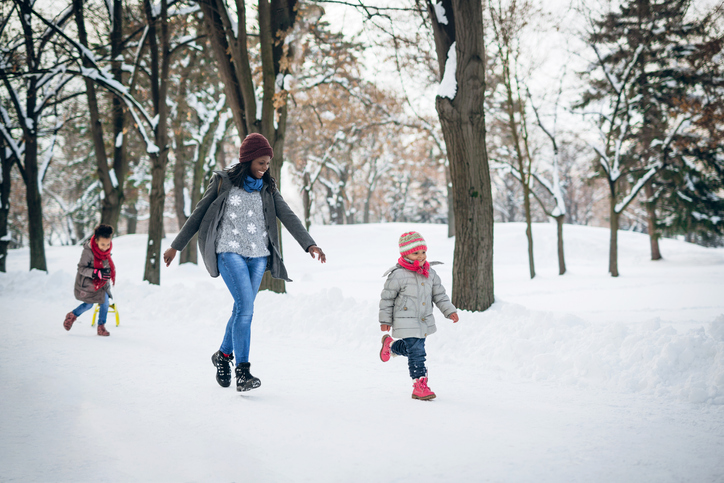
As we near the holiday season, along with trying to keep track of holiday events, parties, and gifts, parents have to think about what to do with their children during school vacation. Given how exhausting the holiday season can be, it’s understandable why parents often let their children spend hours with the TV, tablet, or video games. After all, happy, quiet kids make for happy parents who can finally get stuff done — or relax.
Except kids are spending way too much time in front of screens. According to Common Sense Media, kids ages 8 to 12 are spending nearly five hours a day on entertainment media — and tweens and teens are spending seven hours. This is just entertainment media; it does not include time spent using screens for school or homework.
Given how enticing entertainment media can be, those numbers can easily go higher during unscheduled times like weekends and school vacation. That’s why it’s good to be proactive and come up with other activities. Below are some ideas for parents and caregivers to try. These are mostly good for kids through elementary school, but tweens and teens may enjoy some of them too.
Spending time off the screen
Go outside. This sounds obvious, but spending time outdoors is something kids do less than they used to — and it can be really fun. If you have a yard, go out into it and play hide-and-seek or build a fort from snow or anything else that’s around. If you don’t have a yard, go to a local park or just go for a walk.
Go to the library. Do this early on in vacation, so that your child has lots of books to pass the time. Check out as many as they allow and you can carry.
Build a fort in the living room. Use blankets or sheets over chairs; if you have a small tent, set it up. Bring in pillows, sleeping bags, and flashlights; let the kids sleep in it at night. Let it stay up all vacation.
Build a city in the living room. Use blocks, Legos, boxes (or anything else), and add roads, cars, people, animals, trains, and other toys. Let it stay up all vacation, and make it bigger every day.
Getting creative off the screen
Get creative. Go to the craft store and stock up on inexpensive supplies. Buy things like poster board, huge pieces of paper (you could use those for your city, too, to make parks, roads, and parking lots), paints, and markers. You can make a paper mural, a comic book, a story, posters, or whatever catches your child’s imagination. If you know how to knit or sew, think about teaching your child or making a simple project together. Play music while you create.
Read out loud. There are so many books that are fun to read aloud. When my children were younger, we read the Harry Potter series out loud, as well as the Chronicles of Narnia and books by E.B. White and Roald Dahl. Act out the voices. Have some fun.
Have a puppet show. If you don’t have puppets, you can make some with socks — or you can hold up dolls or action figures and do the talking for them. You can make a makeshift stage by cutting out the back of a box and taping cloth (like a pillowcase) to fall over the front.
Get out the games. There are so many that work across the ages, like checkers, chess, Uno, Connect 4, Sorry, Twister, Clue, Scrabble, or Monopoly. We forget how much fun these can be.
Bake. You don’t have to get fancy — it’s fine to use mixes or pre-made cookie dough. There’s nothing better than baked goods straight from the oven, and adding frosting and decorations makes it even more fun. Turn on music and dance while things bake.
While parents or caregivers need to be involved with some of these activities (like the ones involving the oven, or reading out loud), kids can do many of them independently once you have it started. Which, really, is what children need: time to use their imagination and just play.
But you just may find that once you have things started, you want to play, too.
